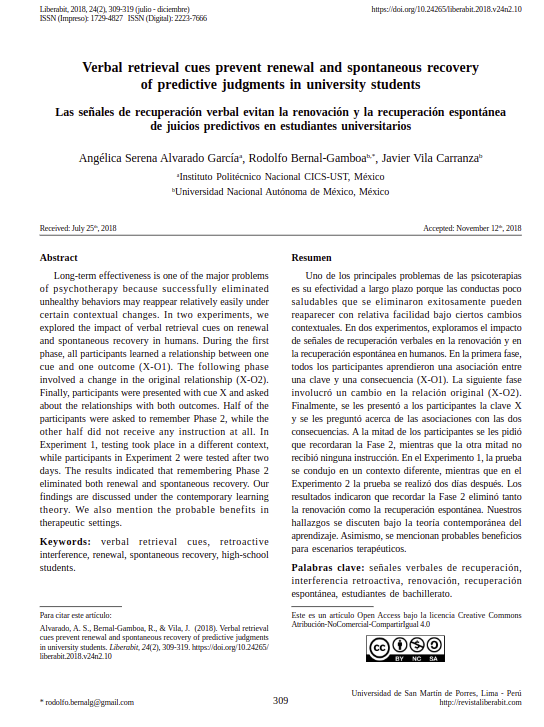Verbal retrieval cues prevent renewal and spontaneous recovery of predictive judgments in university students
Licencia: Creative Commons (by-nc)
Autor(es): Alvarado, Angélica; [et al.]
One of the main problems with psychotherapies is their long-term effectiveness because unhealthy behaviors that have been successfully eliminated can relatively easily reappear under certain contextual changes. In two experiments, we explored the impact of verbal retrieval cues on turnover and spontaneous retrieval in humans. In the first phase, all participants learned an association between a cue and a consequence (X-O1). The next phase involved a change in the original relationship (X-O2). Finally, participants were presented with the X cue and asked about the associations with the two consequences. Half of the participants were asked to recall Phase 2, while the other half received no instruction. In Experiment 1, the test was conducted in a different context, while in Experiment 2 the test was performed two days later. The results indicated that remembering Phase 2 eliminated both renewal and spontaneous recovery. Our findings are discussed under contemporary learning theory. Likewise, probable benefits for therapeutic scenarios are mentioned.
[2018]
Compartir:
Una vez que el usuario haya visto al menos un documento, este fragmento será visible.


